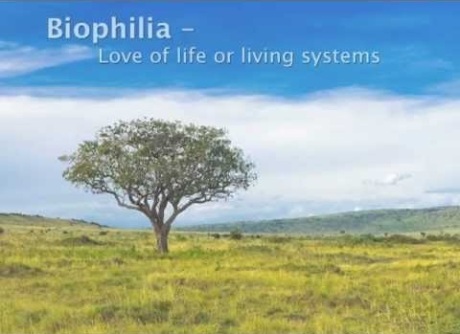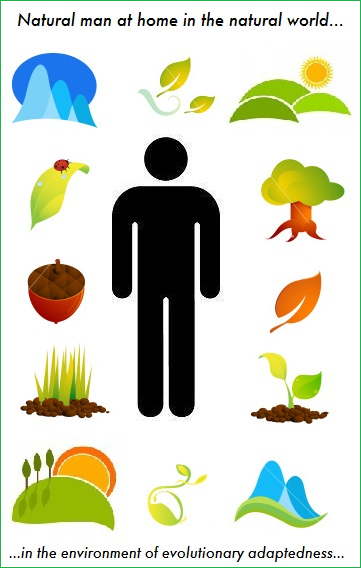Biocentrism and Biophilia
27 July 2016
Wednesday
In The Biocentric Thesis I gave an explicit formulation of the idea that civilizations of the Stelliferous Era originate in the actions of biological agents — actually, I gave two formulations, a weak and a strong, each with a corollary. What I failed to explicitly note in that post was that, in explicitly formulating the biocentric thesis, the idea of biocentricity is not confined to describing the biocentric thesis. In other words, we can identify as “biocentric” some state-of-affairs (presumably a civilization, or, more narrowly, an institution) regardless whether this state-of-affairs exemplifies the biocentric thesis. Thus the concept of the biocentric has a much wider scope than the biocentric thesis specifically.
It is worthwhile to make this distinction because the biocentric thesis is a particular idea about the origin of civilization (an extrapolation of Darwin’s thesis to astrobiological scope) while the idea of the biocentric, being of greater scope, has much wider applicability. If the biocentric thesis is true, that is to say, if all civilizations during the Stelliferous Era begin as biocentric civilizations originating on planetary surfaces (or, in its strong form, if all civilizations in our universe begin as biocentric civilizations originating on planetary surfaces), then biocentrism is not merely a feature of the human condition, it is the condition from which any and all civilizations originate (i.e., it is the common condition of eocivilization).
What is the human relationship to biocentrism beyond a narrowly conceived biocentric thesis on the origins of civilization? In my post Astrobiology Thought Experiment I wrote:
“…I have been trying to get at the human affinity to the rest of life on Earth, and trying to get at it in a primarily visceral sense in order to get around the hopeless tangle of rationalization and cognitive bias that we have painstakingly erected around the idea of humanity.”
What I called “the human affinity for the rest of life on Earth” is also known as biophilia. E. O. Wilson’s initial exposition of the idea of biophilia defined the term as meaning, “…the innate tendency to focus on life and lifelike processes.” This appears on the very first page of his book Biophilia. Elsewhere, in his book The Diversity of Life, Wilson has defined biophilia as, “…the connections that human beings subconsciously seek with the rest of life.”
In formulating the idea of biophilia Wilson already anticipated the extrapolation of biophilia beyond terrestrial life. (Though Wilson’s term biophilia has rapidly gained currency and has been widely discussed, his original vision embracing a biophilia not limited to Earth has not enjoyed the same level of interest.) Also on the first page of Biophilia is this brief reflection on extraterrestrial life:
“From infancy we concentrate happily on ourselves and other organisms. We learn to distinguish life from the inanimate and move toward it like moths to a porch light. Novelty and diversity are particularly esteemed; the mere mention of the word extraterrestrial evokes reveries about still unexplored life, displacing the old and once potent exotic that drew earlier generations to remote islands and jungled interiors.”
Wilson, E. O., Biophilia: the Human Bond with Other Species, Cambridge and London: Harvard University Press, 2003, p. 1.
It seems likely that we would naturally extrapolate both our biophilic and biophobic reactions to any extraterrestrial life we may find. However, it is also likely that, in our encounters with extraterrestrial life in the future, there may be instances in which we cannot as clearly distinguish between the animate and the inanimate as we can with terrestrial life. Our biophilic intuitions may need to be educated and augmented if they are to applied beyond terrestrial life, just as our mathematical intuitions are educated and augmented when we learn advanced mathematical concepts that were no part of our intuitive endowment of mathematical knowledge (we can cite geometrical intuition as an instance of the latter). Unlike the example of educating our mathematical intuitions, however, we cannot educate and augment our biophilic and biophobic reactions without actually traveling to other biospheres and learning directly about other lifeforms, preferably in their native habitats. In other words, progress in biology is ultimately predicated upon progress in space travel. This is implicit in the very idea of astrobiology.
An interest in life as yet unexplored implies the possibility of xenophilia as a special case of biophilia. Wilson seems to unproblematically assume that this is the case, but I have regarded this as an open question. For example, in Terrestrial Bias: Thought Experiments I wrote:
“Is life itself, regardless of its origins, of value to our biophilic minds, or are our anthropogenic minds so focused on differential survival and reproduction of homo sapiens that life itself is an abstract idea that can find no purchase in our sentiments? How far does biophilia extend? Is biophilia really only terrestrial biophilia? Is xenophilia possible for terrestrially evolved minds?”
We can we a bit more systematic about this: we can distinguish between biophilia in a narrow sense and biophilia in an extended sense, and the meaning of biophilia can be extended in more than one way. Biophilia in its narrowest sense is the affinity that human beings have for other terrestrial life. The generalization of this narrow sense of biophilia would be human affinity for all life, wherever that life may be found (as implied by E. O. Wilson). The formalization of the narrow sense of biophilia would be the affinity that any intelligent agent would feel for the biota of its homeworld, and from this formalizaton we can deduce the possibility of a particular intelligent species with its affinity for its particular homeworld (and this is a distinct concept than the purely formal concept of any species’ affinity for its homeworld). The formalization of the generalization of human biophilia would be affinity that any intelligent biological being would have for any life to be found in the universe. These are the permutations of biophilia, and each permutation may be regarded as an open question inviting further research.
Biophilia in the extended sense of the formalization of human biophilia (the affinity that any biological being would have for the biota of its homeworld) can be taken as a foundational posit of cognitive astrobiology, as predictable in shaping minds as natural selection is predictable in shaping bodies. Biophilia is the cognitive expression of biocentrism, and in so far as biocentrism is likely to typify any intelligent biological being, any intelligent biological being is likely to embody the same kind of biophilia found among human beings. In this sense, biophilia is a central phenomenon of cognitive astrobiology.
However, we can also posit that any intelligent agent that builds a technological civilization, and eventually a spacefaring civilization by technological means, will have, to some degree, marginalized native biophilia to the extent that this is necessary in order for a class of persons in this civilization to be fully immersed in a technological milieu. I take this latter condition to be a sine qua non of the development of advanced technological capabilities; perhaps this idea — i.e., the idea of at least one class of persons under the umbrella of a larger society to be immersed in a technological milieu — demands independent analysis and exposition. This I will reserve for a future post.
. . . . .
. . . . .
. . . . .
. . . . .
. . . . .






